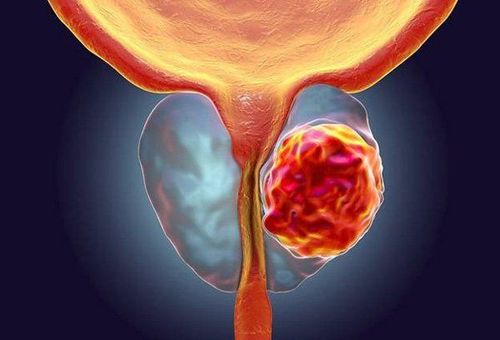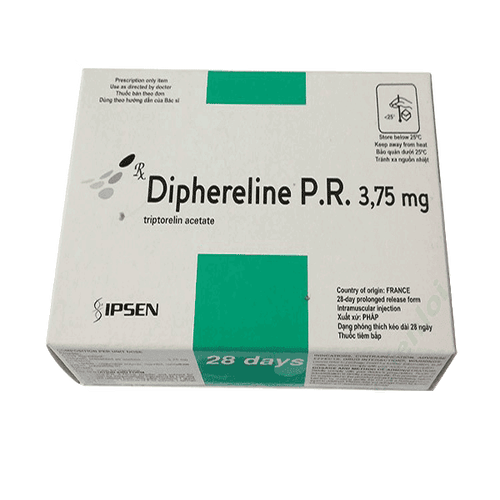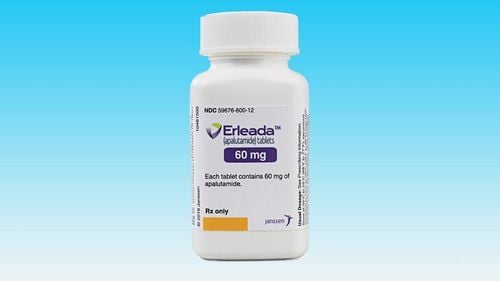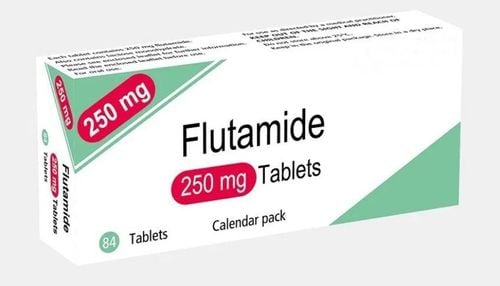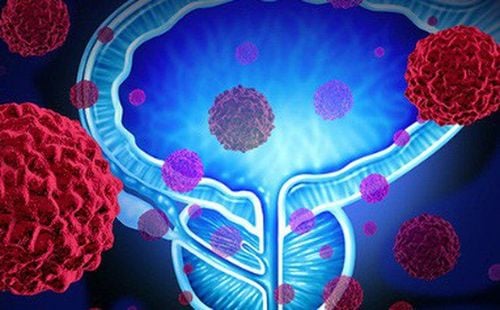This is an automatically translated article.
Posted by Master, Doctor Tran Thanh Hung - Urologist - General Surgery Department - Vinmec Ha Long International Hospital
With the development of modern medicine, there are now many methods of prostate cancer treatment, providing treatment opportunities and good quality of life for patients. If diagnosed and treated early, the prognosis for prostate cancer is very high.
1. Active measures to treat prostate cancer
With the development of modern medicine, there are now treatments for prostate cancer as follows:
Surgery (open surgery, laparoscopic surgery, robotic PT) Endocrine (removal of the testicle by surgery) surgery or drugs) Chemotherapy Radiation (external radiation, brachytherapy) Radioactive seed implantation Depending on the risk classification and the specific patient's condition, the hospital's facility conditions to apply a or a combination of the above treatments.
MORE: Prostate Cancer Treatment: Considerations
1.1.Prostate Cancer Surgery Prostate Cancer Surgery is the classic approach to prostate cancer treatment listed, the applicable methods as listed below are subject to certain criteria. The disease control rate depends on the stage from 70-95% in 5 years:
Surgery (open) radical prostatectomy Prostatectomy through the perineum laparoscopic radical prostatectomy Peritoneal root Endoscopic retroperitoneal radical prostatectomy Robotic-assisted radical prostatectomy
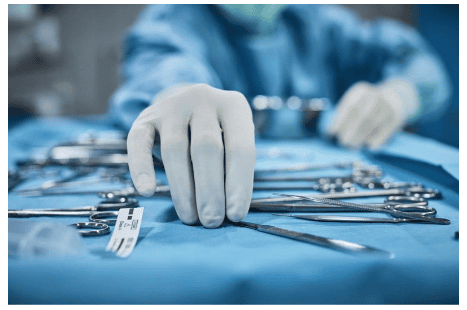
1.2.Radiotherapy Using radiation from outside into the diseased area or at risk of disease. Radiation therapy for prostate cancer is a treatment method in the area that can be treated with the aim of radical or symptomatic, applying treatment depending on the stage of the disease, risk group, patient condition, co-morbidities, survival and sexual function, as well as patient preferences. Radiation therapy can be combined with other methods such as endocrine,.... Current radiotherapy techniques include: 3D radiotherapy, IMRT dose-modulated radiotherapy, image-guided radiotherapy IGRT, VMAT volume-modulating radiotherapy contributes to more effective treatment.
MORE: The role of radiopharmaceutical i-131 in the treatment of thyroid cancer
Early stages of radiotherapy results can be achieved with or close to 70-90% surgery, radiotherapy techniques with modern radiotherapy machines to help reduce radiotherapy complications.
1.3. Endocrine treatment Endocrine therapy is the use of drugs that oppose androgen activity and prostate growth, including hormones and non-hormonal substances. Prostate cancer is thought to grow in a male hormone-dependent manner, so reducing or eliminating male hormones causes the death of hormone-dependent cancer cells.
Types of endocrine therapy include: Surgical and medical orchiectomy as LHRH agonists induce pituitary LHRH receptor deactivation. Anti-androgen agents or inhibitors of hormone synthesis. Endocrine therapy is the primary treatment for metastatic prostate cancer and in combination with other methods (radiotherapy, surgery) for high- and moderate-risk localized cancers.
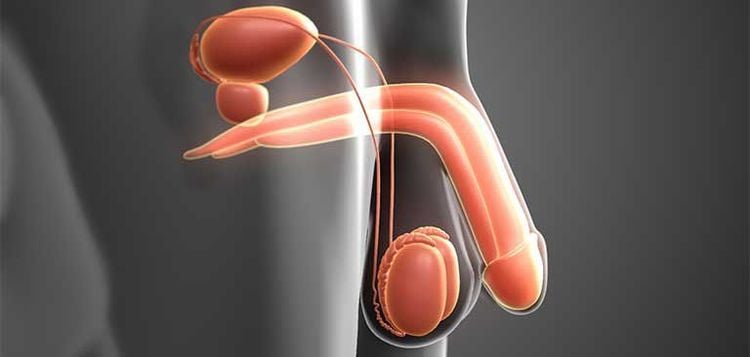
1.4. Treatment of orchiectomy-resistant prostate cancer Patients who are on antiandrogen therapy with advanced disease manifestations (elevated PSA, progression of old lesions, development of new lesions) are considered. is testicular resistance.
Based on clinical symptoms and PSA and testosterone tests, imaging to identify orchiectomy-resistant prostate cancer. Prostate cancer has a long progression, so even those resistant to orchiectomy still have a good chance of a long and good life thanks to the right treatment strategy.
1.5. The technique of implanting radioactive seeds into the tumor to treat prostate cancer is an improvement of brachytherapy combined with internal radiation therapy that has been researched and applied in many countries around the world. and bring great benefits to patients. Currently in developed countries such as the United States, Germany, and Japan, it is applied to localized, early-stage prostate cancer.
The method has the outstanding advantage of high local tumor control, with a 10-year local control rate of 95-97%. The duration and course of treatment are short, so the patient's stay in the hospital is short and no postoperative care is required, there are few complications, the male's physiological function (impotence) is little or not affected, and the quality of the treatment is increased. quantity of life.
Radioactive seed implantation is a safe, effective treatment method, increasing survival time, increasing quality of life for patients with early prostate cancer.
2. Some notes during treatment monitoring
Currently, according to official statistics, traditional and herbal remedies have not been recognized by any country in the world as well as by the Vietnamese Ministry of Health as an official treatment method. In fact, in Vietnam, the drugs used when the disease is in the final stage and have supportive effects are the main ones. Accordingly, absolutely do not use folk remedies right from the beginning when diagnosed as prostate cancer but ignore official treatment measures, avoiding missing the golden opportunity to cure the disease. The expected life expectancy of prostate cancer patients >= 70 years old (according to the guidelines of the European Society of Urology 2008) is as follows:
Expected number of years to live
| Tuổi | 70 | 75 | 80 | 85 | 90 | 95 |
| Nhóm 1 (Mạnh khỏe) | 18 | 14,2 | 10,8 | 7,9 | 5,8 | 4,3 |
| Nhóm 2 (Trung bình) | 12,4 | 9,3 | 6,7 | 4,7 | 3,2 | 2,3 |
| Nhóm 3 (Yếu) | 6,7 | 4,9 | 3,3 | 2,2 | 1,5 | 1,0 |
Cancer inherently does not spare anyone, it is estimated that every year in the world, a very large proportion of people die from cancer. In fact, if cancer can be detected at an early stage, the prognosis for treatment is very high, even if it is completely cured and not recurred. Therefore, cancer screening is essential, especially for high-risk patients.
Currently, Vinmec International General Hospital has been implementing a package of screening and screening for prostate cancer. At Vinmec, there are full facilities for modern prostate cancer diagnosis and screening such as: PET/CT, SPECT/CT, MRI..., blood marrow test, histopathology, immunohistochemistry test translation, genetic testing, molecular biology tests, as well as a full range of targeted drugs, the most advanced immunotherapy drugs in cancer treatment. Multimodal cancer treatment from surgery, radiation therapy, chemotherapy, hematopoietic stem cell transplantation, targeted therapy, immunotherapy in cancer treatment, new treatments such as autoimmunotherapy body, heat therapy...
After having an accurate diagnosis of the disease and stage, the patient will be consulted to choose the most appropriate and effective treatment methods. The treatment process is always closely coordinated with many specialties: Diagnostic Imaging, Biochemistry, Immunology, Cardiology, Stem Cell and Gene Technology; Department of Obstetrics and Gynecology, Department of Endocrinology, Department of Rehabilitation, Department of Psychology, Department of Nutrition... to bring the highest efficiency and comfort to the patient. After undergoing the treatment phase, the patient will also be monitored and re-examined to determine whether the cancer treatment is effective or not.
Customers interested in prostate cancer examination, screening and treatment services can contact Vinmec International General Hospital for service.
Please dial HOTLINE for more information or register for an appointment HERE. Download MyVinmec app to make appointments faster and to manage your bookings easily.





